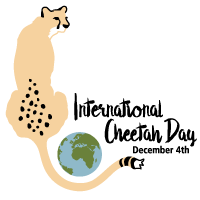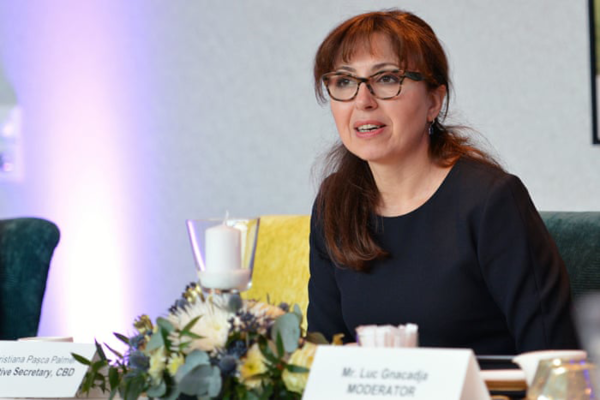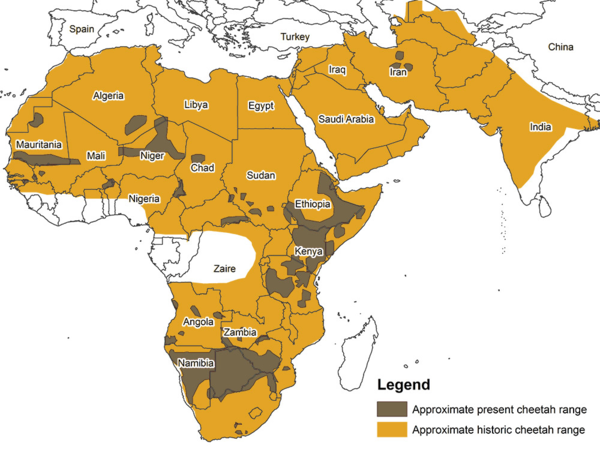A rapport of World Wide Fund shows how mankind has managed to obliterate 60% of the species of mammals, birds, fish and reptiles, from the 70s up to now.
Mike Barrett, of WWF, states that “if there was a 60% decline in the human population, that would be equivalent to emptying North America, South America, Africa, Europe, China and Oceania. That is the scale of what we have done.”
The accelerated consumption of resources and food on a global scale, by a population continuously on the rise, affects the balance of nature – a balance reached within millions and millions of years of evolution. Ironically, human society depends precisely on this balance for clean air and water, as well as everything else we need for our existence and way of life.
The ecosystems that surround us are essential to human life: nature, far from being a whim, or a luxury, is what nourishes us literally and figurately – spiritually and culturally. Pollination and thus the survival of plant life, maintaining a mild climate, without extreme phenomena, energy production – all these things are in danger and affect the future of the generations to come.
Cristiana Pașca Palmer, former Environment Minister of Romania and current Executive Secretary of the UN Convention on Biological Diversity, together with her working group, is advocating for an agreement between the 195 member states of the United Nations on biodiversity – one that would be similar in importance to the Paris Agreement on Climate. She fears, however, that in the time it will take to reach such an agreement the loss of natural habitats will accelerate and more and more species will become endangered and extinct, over the entire planet. There are estimations that, by 2050, another 50% of the species of birds and mammals in Africa will be lost, and Asian fisheries will collapse. “I hope we aren’t the first species to document our own extinction” – she says.
Cristiana Paşca Palmer, the UN’s biodiversity chief. Photograph: Herman njoroge chege/IISD/ENB
We might ask ourselves why it is so important to have all these many species of plants and animals. Can we not get by just as nicely only with, for example, farm animals?
Well, here are two of the thousands of examples that show why biodiversity across our planet is an essential condition for the survival of the human race.
Single cell, apparently insignificant organisms, such as phytoplankton, are the basis of the maritime food chain, as well as a significant source of oxygen for the sea and ocean waters – oxygen needed by the life in these waters that we ourselves enjoy, in an economy of 1.5 trillion dollars every year . This invisible underwater “forest” supplies half the oxygen on the planet, and plays an essential part in the journey of carbon dioxide from the atmosphere to the deep sea, and therefore in maintaining a balanced climate.
At the other end of the food chain, apex predators play an extremely important role themselves – namely that of preventing the excessive proliferation of other animals, which also means maintaining the diversity of plant life, therefore that of insects (including pollinators), therefore that of birds. By feeding on the most vulnerable individuals, those which do not manage to run fast enough or to hide well enough, for whatever reason, apex predators contribute to eliminating weak genes out of the species of their prey – therefore they ensure the selection of the healthiest, fittest antelopes, for example. Moreover, by reducing their numbers, predators prevent epidemics in the populations of their prey.
Cheetahs have become extinct from over 20 countries, in Africa, the Arabian Peninsula and Central Asia, with only a few dozens surviving in Iran. Their habitat has been claimed and altered by human communities, and when they are not poached by illegal pet traders, they are hunted for their coat or simply for the protection of the animal farms that happen to cross their territory. All of these factors have led to a decline in the global population of cheetahs, from about 100 000 individuals in 1900, to fewer than 8 000 cheetahs worldwide today.
The Horn of Africa, where Somaliland lies, is a favourite route for animal poachers, given its proximity to the Arabian Peninsula, making it easier for them to transport wild animals out of Africa and into the Gulf countries, within the illegal animal trade networks.
The University of Agronomic Sciences and Veterinary Medicine Cluj Napoca, Romania, together with the NGO Vétérinaires Sans Frontières Czech Republic and the University of Veterinary and Pharmaceutical Sciences in Brno, Czech Republic, have started a program to support the Faculty of Veterinary Medicine in Hargeisa, Somaliland, in order to help create specialists in the medicine of wild animals and, just as importantly, to help provide the much needed medical care to the cheetahs rescued from poachers by the Ministry of Environment and Rural Development in Somaliland. One of the supporters of this project is the global producer of veterinary medicine, Ceva Sante Animale, through its Romanian branch. The shelter where these cheetahs are cared for was founded and has been supported for years now by the Cheetah Conservation Fund, and the local NGO Heritage Somaliland to provide their daily meals, rent and the salary for Nujuum, their caretaker. The project Stories from the Cheetah House will allow the Romanian and Czech volunteers to considerably improve the condition of these rescued animals by giving them the proper medical treatment.
As the Faculty of Veterinary Medicine at the University of Hargeisa does not have courses on the medicine of wild animals in its curriculum, there are no local veterinarians specialized in this area of medicine. CCF, which is based in Namibia (southern Africa) ensures their basic care and provides its expertise from working with cheetahs for decades. The volunteers from VSF Czech Republic and the two European universities involved (USAMV Cluj and VFU Brno) provide the specialized medical assistance on site. Nujuum, who has been the caretaker of the rescue cheetahs for several years and is in her final year of veterinary school is currently doing an intensive program at a center for wildlife rehabilitation in Jordan, with the support of VSF CZ and VFU CZ. Over the duration of her studies, the volunteers will also be responsible with the daily care of the animals at the Cheetah House.
“The cheetahs get to the shelter in Hargeisa as they are confiscated by the authorities of the Environment Ministry in Somaliland. They usually arrive in a precarious condition, small cubs, kidnapped away from their mothers, dehydrated, ill, and with all sorts of infections. Sadly, many of them do not survive.
Our volunteers from the Faculty of Veterinary Medicine in Cluj, together with volunteers form the Faculty of Veterinary Medicine in Brno, Czech Republic, will help set up some clear diagnosis protocols for these cheetahs, as well as some treatment schemes and with teaching the veterinary medicine students in Hargeisa so that they can also apply these methods” – says Dr. Andrei Mihalca, Prof. Conf. at the University of Agronomic Studies and Veterinary Medicine Cluj Napoca, the “father” of the project Stories from the Cheetah House.
Beyond their personal life experience, the academic and professional experiences that these volunteering students have understood they can get, they have also understood one other thing – namely that we are all responsible with preserving the diversity of life, on the entire planet. We are all responsible for the survival of phytoplankton, marine life and water and food sources for the children of our children. The brown bear is not only for Romanians to protect (even though the most numerous European population lives in Romania), or for the Russians, just as the cheetah is not only under the protection of the few African areas where it still lives.
(Source : https://cheetah.org/about-the-cheetah/race-for-survival/past-and-present-cheetah-range-map/)
Some of the experiences of the volunteers at the Cheetah House are in the Notes section on the facebook page of the company Ceva Sante Animale Romania.
The joy of contributing to the conservation of the beauty and diversity of life on Earth is very well complemented by the pride in the veterinarians who have chosen to do everything they can to carry such a simple message: all animals are part of our lives.
#TogetherBeyondAnimalHealth

 Corporate Website
Corporate Website
 Africa
Africa
 Argentina
Argentina
 Asia
Asia
 Australia
Australia
 Belgium
Belgium
 Brazil
Brazil
 Bulgaria
Bulgaria
 Canada (EN)
Canada (EN)
 Chile
Chile
 China
China
 Colombia
Colombia
 Denmark
Denmark
 Egypt
Egypt
 France
France
 Germany
Germany
 Greece
Greece
 Hungary
Hungary
 Indonesia
Indonesia
 Italia
Italia
 India
India
 Japan
Japan
 Korea
Korea
 Malaysia
Malaysia
 Mexico
Mexico
 Middle East
Middle East
 Netherlands
Netherlands
 Peru
Peru
 Philippines
Philippines
 Poland
Poland
 Portugal
Portugal
 Romania
Romania
 Russia
Russia
 South Africa
South Africa
 Spain
Spain
 Sweden
Sweden
 Thailand
Thailand
 Tunisia
Tunisia
 Turkey
Turkey
 Ukraine
Ukraine
 United Kingdom
United Kingdom
 USA
USA
 Vietnam
Vietnam



